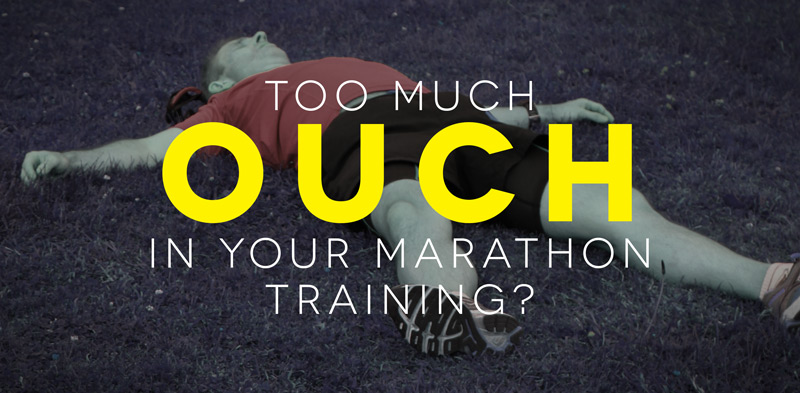By Hayden Shearman // How should you feel when training for a marathon? The short answer is this: tired.
Training for a marathon is hard work. Your body will be experiencing a physical stress that is comparable in many ways to pregnancy or long term illness.

You’ll have muscle pain, stiffness, cramping, blisters, raw skin from chaffing, dehydration, an inexhaustible appetite, sleeping problems and a general sense of being low on energy. This is normal, but the good news is that it isn’t permanent.
I typically feel like this for 24-48 hours after my big marathon training runs. But if your training plan is structured well and you’re not carrying any deeper health or injury complications, then you should bounce back and spend the rest of your week feeling predominantly like a normal human being (and don’t worry, you’ve signed up to run a marathon, you will never be a 100% normal human being again——welcome to the crazy few!).
In the remainder of the week you should have enough energy and athleticism to enjoy day-to-day life like chasing the kids around the house, staying productive at work, mowing lawns and tying up your own shoelaces (note: if you can no longer lace up the kicks by yourself you’re probably WAY over trained … either that or missing a hand!).
There will also be certain weeks in your marathon build-up where that 24-48 hours of fatigue might extend further into the week as you ramp up mileage and/or training intensity. My recommendation for these weeks is to slot them in when the remainder of your life isn’t too crazy. Many people don’t run on holidays but I find this is to be the perfect time to get in those big training weeks because you’re not then spending your days working at a desk (ceasing up the hip flexors, shortening the hammies and promoting terrible posture) or stressing about achieving deadlines.
On the same token, try to sync up your easy training weeks with your big work or family weeks. If your baby is getting immunised, it might pay to take a recovery training week to deal with the ensuing lack of sleep. Or if you’re cramming for exams, just use running as a short stress relief that clears the mind for 30 or 40 minutes and allows you to go back to the books energised and focused.
To finish up this discussion about dealing with the lows of marathon training, here are a few quick tips for making sure those lows are never permanent:
1. Treat recovery techniques like important training tools as important as the running itself.
2. Start or end your summer showers with 5mins on cold—helps with blood circulation and freshens you up.
3. Respond to your increased appetite with an increase in fruit and veggies, not just dessert!
4. Listen to your body; don’t blindly follow a training plan.
5. Book in a power nap (for 10-20mins) after your weekly long run—your body will love you for it.
Happy running.
This is a series of blogs all about getting you trained up and raring to go for the 2017 Lion Foundation Rotorua Marathon (or half or quarter).
Grab a fully personalised and tailored training plan to take you to your next race.



